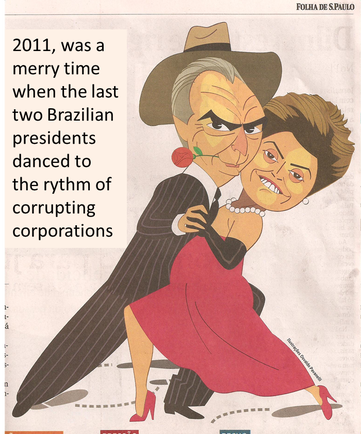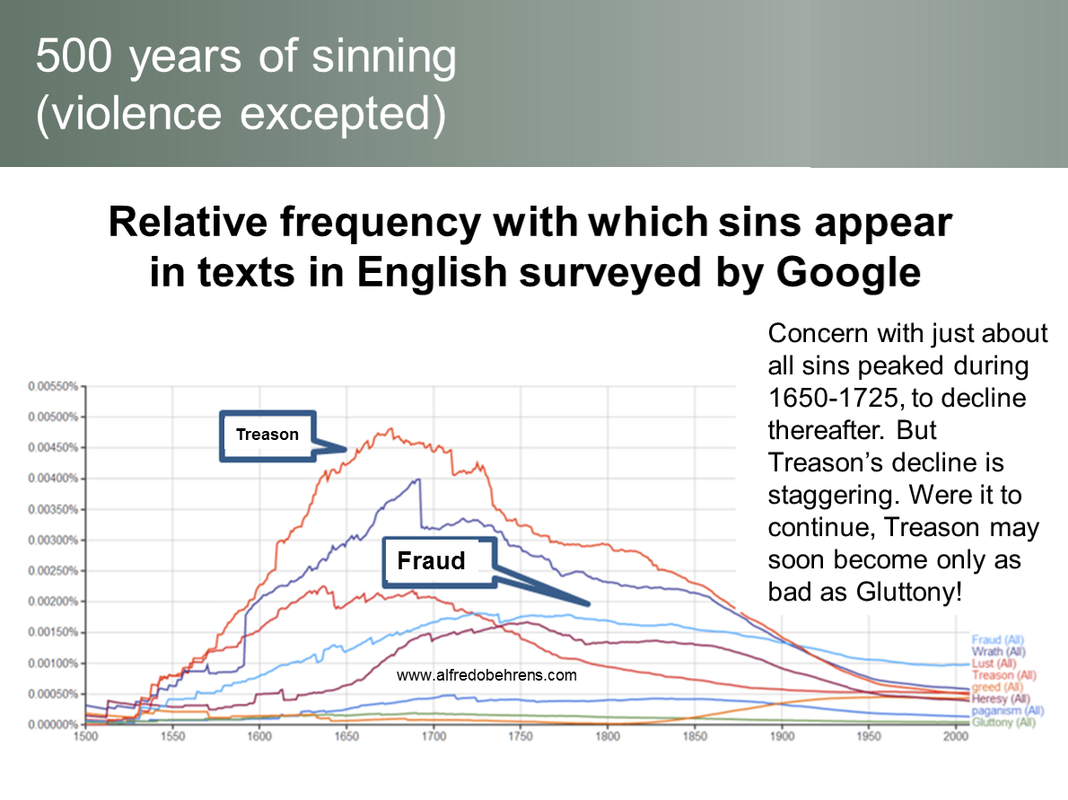Brazil’s President Temer
hangs by a thread.
hangs by a thread.

Brazil’s penchant for win-win solutions suggests the next transfer will also be swift and pacific. This is good for business and quite frankly, for the people as well.
It pays to remember how Brazil got to this sad state of affairs.
President Lula had many qualities going on for him, but he failed on the litmus test of effective leadership: making a successor. This is why Brazil was landed with President Dilma who, lacking a political base of her own, would remain hostage to Lula.
It did not work. I never thought it would, and I said so in 2010 in an interview for Clarín of Buenos Aires (in Spanish).
Since, we learned that not even Lula's workers party was immune to corruption, which now we know to be more widespread, even as it unfolds.
Most heirs of Iberian countries are more concerned with principles than Brazil is. One only has to remember the pragmatic way with President Dilma was shown the door; Temer is likely to be disposed of in a similarly swift way.
Principles are a good thing and Brazil is also likely to justify the choice of the next leader, as it did the last time, barely a year ago. But Brazil´s penchant for win-win solutions also makes the outcome harder to predict, because there are a lot of winners to accommodate. This itself will delay the ousting of Temer, perhaps for long enough to allow him to fulfill his mandate, even at single digit preferences among the electorate.
The choice of a successor is likely to remain within the best known who have not yet fallen in disrepute. Why not Roberto Mangabeira Unger? This would allow for a degree of normalcy, at least until true alternatives have a chance of elaborating a candidacy by the next general elections, literally around the corner.
It pays to remember how Brazil got to this sad state of affairs.
President Lula had many qualities going on for him, but he failed on the litmus test of effective leadership: making a successor. This is why Brazil was landed with President Dilma who, lacking a political base of her own, would remain hostage to Lula.
It did not work. I never thought it would, and I said so in 2010 in an interview for Clarín of Buenos Aires (in Spanish).
Since, we learned that not even Lula's workers party was immune to corruption, which now we know to be more widespread, even as it unfolds.
Most heirs of Iberian countries are more concerned with principles than Brazil is. One only has to remember the pragmatic way with President Dilma was shown the door; Temer is likely to be disposed of in a similarly swift way.
Principles are a good thing and Brazil is also likely to justify the choice of the next leader, as it did the last time, barely a year ago. But Brazil´s penchant for win-win solutions also makes the outcome harder to predict, because there are a lot of winners to accommodate. This itself will delay the ousting of Temer, perhaps for long enough to allow him to fulfill his mandate, even at single digit preferences among the electorate.
The choice of a successor is likely to remain within the best known who have not yet fallen in disrepute. Why not Roberto Mangabeira Unger? This would allow for a degree of normalcy, at least until true alternatives have a chance of elaborating a candidacy by the next general elections, literally around the corner.



 RSS Feed
RSS Feed